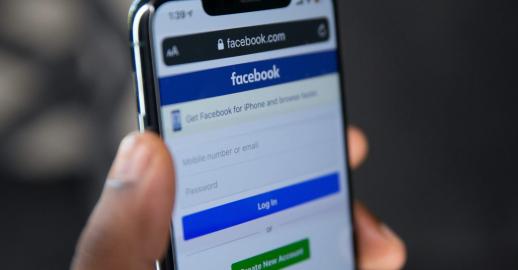
21st November 2019
Is There Value in “Mistake Marketing”?
An Innocent Mistake, and an Introduction to Mistake Marketing
A few weeks ago innocent drinks posted on Twitter about a new product: their innovative new dairy-free, vegan conker milk. The company, famous for its smoothies, sent out a video about the drink – meaning for it to be a funny joke, because not only can conkers not be milked, but they are actually poisonous and, as innocent reiterated in the days that followed, you should never actually eat them.
The “joke” went awry when it came to light that innocent had been a little too convincing and many people believed the product was real. The conker milk video was reposted with a warning at the beginning and a banner throughout telling people that the drink isn’t real and you shouldn’t eat conkers. An explanation also followed:
DO NOT EAT CONKERS
— innocent drinks (@innocent) October 18, 2019
The product featured in this advert is not real.
PLEASE DO NOT EAT OR MILK CONKERS pic.twitter.com/dIumpBVjYI
But what came next was impressive – the company continued to tweet and respond to fans in a playful, light-hearted way and in true innocent style – while still driving home the message that they messed up and you definitely, definitely shouldn’t eat conkers:
Thank you for contacting the innocent department of deciding whether or not something is okay to eat. We are pleased to report Toberlone's are both safe and tasty. They can also double up as a makeshift toast rack in an emergency.https://t.co/26N8hXCOR1
— innocent drinks (@innocent) October 19, 2019
It's Saturday night. You're relaxing on the sofa, how it should be. You don't fancy cooking tonight. You haven't had takeaway in ages. Time to treat yourself.
— innocent drinks (@innocent) October 19, 2019
What should you order? Conkers?
NO. DO NOT ORDER CONKERS AS A TAKEAWAY. ORDER PIZZA OR CURRY OR SOMETHING.
In fact, the on-brand interaction they carried out during this crisis management had me second-guessing them for a moment. Was it possible that they did this on purpose? Could their marketing team have intentionally put out this video knowing that they would follow it up with an amended video and several tweets and conversations like this to cause a stir and get their brand noticed? In the end, I decided no, that would be a dangerous thing to do intentionally if a follower did try to eat conkers after seeing their initial tweet. A plan like that surely wouldn’t make it through any compliance department. It must have been a genuine mistake, which they subsequently handled brilliantly.
Did McDonald's Orchestrate this Mistake?
It did get me thinking, though: is there value in a kind of “mistake marketing” approach? It reminded me of this tweet from McDonald’s around this time in 2017, in which they seemingly posted placeholder text for Black Friday instead of their actual ad copy:
Black Friday **** Need copy and link****
— McDonald's Corporation (@McDonaldsCorp) November 24, 2017
At first glance, it looks like their social media team slipped up in an amusing way. Smartly, they followed up by using the mistake to poke fun at themselves and promote one of their products: “When you tweet before your first cup of McCafé… Nothing comes before coffee.” But did McDonald’s tweet this placeholder text on purpose to get people talking about their “mistake” and subsequently use it to point out that you should get one of their coffees before starting work? After all, what would McDonald’s tweet about for Black Friday anyway – discounted burgers? It does seem slightly orchestrated, but whether you think it’s a real mistake or deliberate, it got people talking, and that’s the great power of social media when used well. Of course, if it was deliberate, McDonald’s wouldn’t shatter the illusion by admitting to it.
What is and isn't Mistake Marketing?
To sum up, mistake marketing can take the form of a genuine mistake with a great, on-brand recovery that absolves you and may even reflect better on you than if you hadn’t made the mistake at all. Or it could be the same thing done deliberately to get people talking about you. It’s a controversial way of increasing brand awareness.
Mistake marketing is not to be confused with joke campaigns brands engage in for April Fool’s Day, or other campaigns where the product or statement very obviously isn’t real. You may remember KFC’s cauliflower burger – it was a bit of fun and a poke at the clean eating trend, and as far as I’m aware, nobody actually believed the burger was real. Conversely, the video from innocent appeared to be an attempt at this kind of campaign, just gone a bit wrong – hence, “mistake marketing”.
Should You Attempt Mistake Marketing?
So, should you try mistake marketing? It isn’t something I’ll be suggesting for my clients any time soon – if you’re a smaller company, you don’t want to go viral for the first time with something you took a risk on that ends up going a bit pear-shaped. Sure, innocent and McDonald’s were fine, but if it’s not handled correctly or if people don’t take it in the way you intended (perhaps because they might not be very familiar with your company), this kind of stunt could damage your reputation. Is all publicity good publicity? Perhaps only if you make it so.
However, there is a lot to be learned about how to recover from errors made in your marketing, and this could apply to any business. In a previous blog post, I relayed advice from a crisis management advisor who recommended that businesses communicate with their critics, outline the facts, apologise if necessary, clear up misunderstandings and explain how you’ll prevent the mistake from happening in the future – all with an on-brand tone appropriate for your audience.
Contact us to find out how social media marketing can fit into your digital marketing system and how SilverDisc can help you to meet your business goals.





